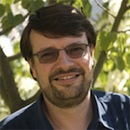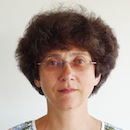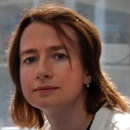Advisory Board and Editors Biochemistry

Haseeb A. Khan
Distinguished Professor of Biochemistry at College of Science, King Saud University, Riyadh, Saudi Arabia. Group Leader of Analytical and Molecular Bioscience Research Group and a Chair Professor at Research Chair for Biomedical Applications of Nanomaterials, King Saud University. PhD from Aligarh Muslim University, Aligarh, India and received scientific trainings in USA, UK, Denmark and Finland. Fellow of the Royal College of Pathologists (FRCPath) and the Royal Society of Chemistry (FRSC), UK. Authored more than 300 publications including 2 books and 20 book chapters. Recipient of Microsoft eScience Award. Listed in Top-2% World Ranking of Scientists. Research interests are clinical biochemistry, analytical chemistry, environmental chemistry, nanobiotechnology, molecular conservation, bioinformatics, pharmacology, and toxicology.

Rosemary E Kiernan
Research Director, CNRS. With an interest in understanding the mechanisms that contribute to the silencing or activation of mammalian genes.

Stanislav Kopriva
Professor for Plant Biochemistry at University of Cologne

Alla S Kostyukova
Associate Professor at Voiland School of Chemical Engineering & Bioengineering. Former director of the Circular Dichroism facility at Robert Wood Johnson Medical School, Piscataway, NJ.

Theerapong Krajaejun
Professor of Clinical Pathology, Department of Pathology, Faculty of Medicine, Ramathibodi Hospital, Mahidol University, Bangkok, Thailand.

Mohammed Kuddus
Dr. Mohammed Kuddus is working as a Professor and Chairman of Biochemistry Department at University of Hail, Saudi Arabia. His main research area includes Molecular biology, Industrial enzymes, Extremophiles and Extremozymes, Microbial biotechnology, Food biotechnology, Waste utilization, Value added products, Bioremediation, Biopolymers and Bioplastics. He has published more than 75 research articles in reputed international journals along with 8 books and 22 book chapters; and presented more than 40 abstracts in national/international conferences/symposia. He has been serving as an Editor / Editorial Board Member and Reviewer of various international reputed journals. He has been awarded Young Scientist Projects from the Department of Science and Technology, India and International Foundation for Science, Sweden.

Carmelo La Rosa
Carmelo La Rosa is a Professor of Physical-Chemistry at the University of Catania, Italy. He received a master’s degree in Chemistry and Ph.D. in Physical-Chemistry from the University of Catania (Italy), working on lyotropic liquid crystals. After completing postdoctoral training on thermodynamics and kinetics of protein folding-unfolding at the University of Catania and Leiden University (The Netherland), he joined the department of Chemical Sciences, University of Catania. His current research focuses on the biophysics of amyloidogenic proteins and their interaction with model membranes.

Daniel J. G. Lahr
I am interested in an array of questions regarding protistan evolution and diversity. I have worked in protistology since my 1st undergraduate year, then did a masters in taxonomy of testate amoebae and a PhD in evolutionary biology, focusing on amoebozoans. My research focuses on constructing phylogenetic trees to answer broad questions in the evolutionary biology of microbes.

Elizabeth G. Laird
My research goals are to characterise the mechanisms of collagenous tissue development, repair and renewal. Current research interests include understanding the dynamics of collagen synthesis and turnover, the role of stem cells in musculoskeletal homeostasis and the role of glucose in musculoskeletal ageing. Tissues of interest are primarily tendon and ligament but include cartilage, bone, cornea and intervertebral disc, as well as fibrotic tissue.
This research is important because age-related degeneration and loss of function in musculoskeletal tissues is associated with chronic joint pain, limited movement, tendinopathy, ligament damage, intervertebral disc degeneration and osteoarthritis. There is both a loss of tissue integrity and propensity to fibrosis indicating that homeostasis of the collagenous extracellular matrix is lost with age. Understanding the molecular processes that create functional musculoskeletal tissues during development and growth, and which malfunction or cease to operate in aged tissues is key to developing new strategies for tissue engineering, to activate intrinsic stem cell repair mechanisms and to develop beneficial pharmaceutical, dietary or exercise-based interventions in an increasingly aged society.

Sapna Langyan
Sapna Langyan is a scientist at ICAR-National Bureau of Plant Genetic Resources, New Delhi, India. She holds an experience of more than 11 years in agricultural research. She aims to contribute towards food and nutritional security of the world and alleviating malnutrition through research support. She has more than 30 research papers, book chapters, conference proceedings and many others in reputed national and international journals and also holds editorship of many reputed journals including Frontiers. She has also edited one book on ‘Maize: Nutrition dynamics and novel uses’, published by Springer https://www.springer.com/gp/book/9788132216223. She has been awarded many prestigious awards, fellowship and grants throughout her research career by premier science academies and by the Govt. of India.

Jack C. Leo
I study bacterial pathogenesis, focusing on autotransporters of Gram-negative bacteria. These proteins are self-contained secretion systems and surface molecules that mediate a number of virulence functions. I aim to understand three aspects of autotransporter-mediated pathogenesis: 1) the mechanisms of virulence functions, 2) the biogenesis of autotransporters and 3) regulation of gene expression. All three are potential sites for intervention to prevent host colonisation and infection.

Liudmila P Leppik
Assistant Director, Frankfurt Initiative for Regenerative Medicine, J.W. Goethe-Universität, Friedrichsheim Orthopedic University Hospital.
Dr. Leppik’s research background is in the fields of molecular biology and virology in Russia and Germany. Specifically her research focused on human genome activity and regulation of gene expression during tumor genesis and development and differentiation. Her current research at FIRM focuses on tissue development and regeneration.

